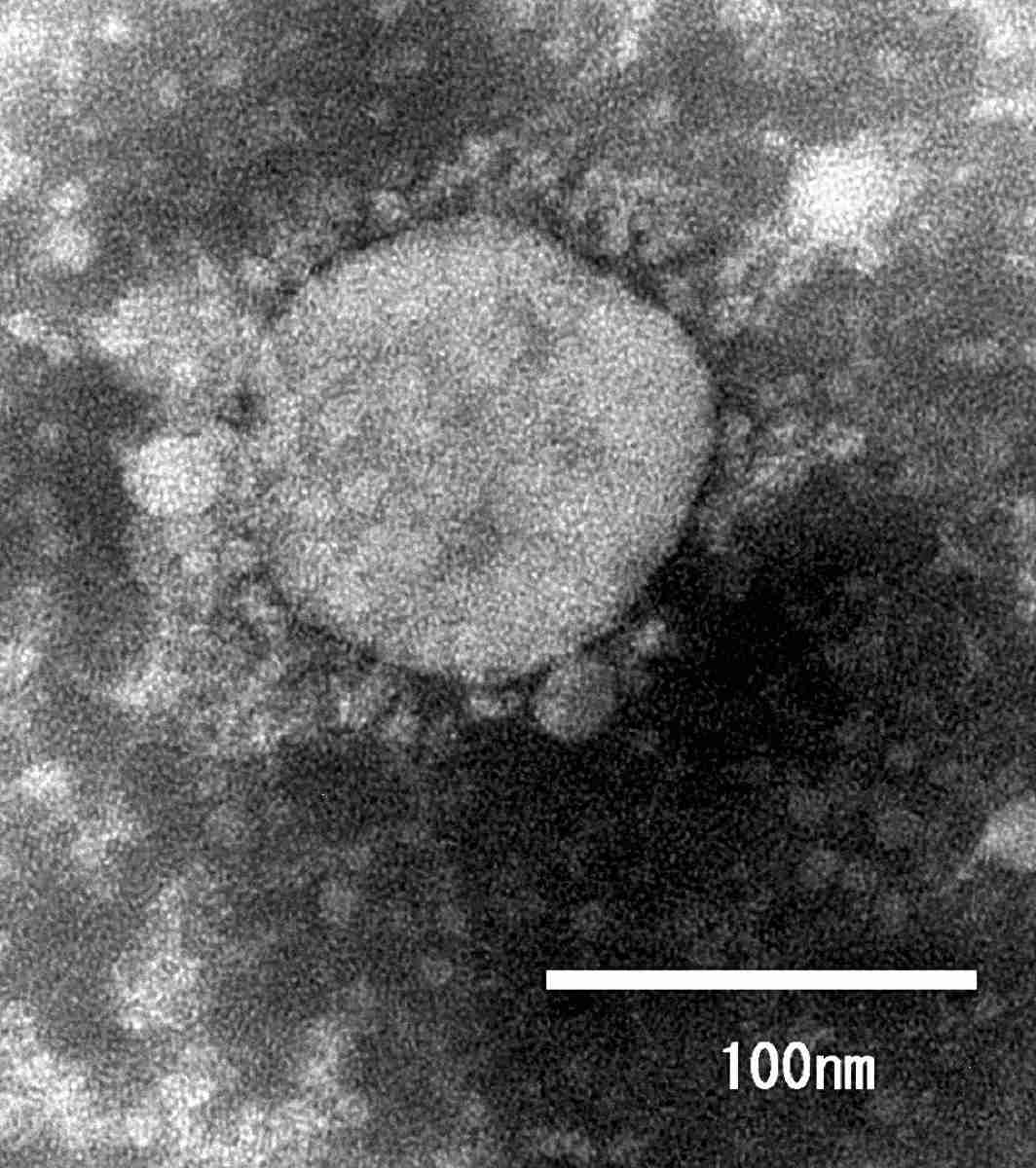
A new variant of the new coronavirus found in Britain
16:12 JST, January 27, 2021
WASHINGTON / TOKYO — A year has passed since the first novel coronavirus infection was confirmed in China. With the total number of reported cases having topped 100 million worldwide, the virus is now posing a new threat as highly infectious variants have appeared around the world.
■ U.S. stands out
U.S. President Joe Biden kept a stern look on his face during a press conference at the White House on Monday. “The first thing that happens is we see the number of infections go up. Then you see the hospitalizations go up. Then you see the deaths go up,” Biden said, explaining the coronavirus pandemic in which more than 25 million people have been infected in his country alone. He added that they would beat the coronavirus although it would take time. The remarks underline the president’s desperate determination to face the national crisis.
Global coronavirus cases reached 50 million worldwide in early November 2020, and the number nearly doubled in about 2½ months.
Worldwide, the number of infection cases per million people stands at about 13,000 people, while the figure rose to about 77,000 people in the United States. Compared to about 2,900 in Japan, Britain (about 55,000 per million) and Brazil (about 42,000 per million) also have high infection rates.
The fact that more than 100 million people have contracted the disease in a global population of 7.7 billion is unprecedentedly shocking. Stephen Morrison, senior vice president at the Center for Strategic and International Studies (CSIS) and director of its Global Health Policy Center, compared the latest pandemic to World War II and the Spanish flu pandemic that started in 1918, saying that this is an unprecedented situation for modern-day people — and it is not over yet.
■ Test of 3rd dose
Coronavirus variants have been found in countries such as Britain, South Africa and Brazil, adding to the current confusion. It is believed that they are more infectious as certain changes in their genetic information allow them to bond to human cells more easily. Such variants have been blamed for regional spreads of the virus. The U.S. Centers for Disease Control and Prevention is increasingly cautious, saying that coronavirus variants could be the mainstream of the pandemic in March.
U.S.-based biotech company Moderna, Inc. announced that its vaccine appears effective against a new variant discovered in Britain. It also said that while the vaccine was less potent against a variant that was first identified in South Africa, it is effective to some degree. The company’s vaccine is to be supplied to Japan.
Even so, there is strong concern over the effectiveness of vaccines against new variants. Moderna revealed that it has begun working on a clinical trial aimed at boosting the effectiveness of the vaccine by an additional third dose of the vaccine, while the two-dose regimen of the vaccine is effective against the original version of the novel coronavirus.
■ Eligibility for vaccination expanded

People without appointments wait in line for the potential chance to receive a Covid-19 vaccination at the Kedren Community Health Center on Monday in Los Angeles.
Vaccines are expected to hold the key to controlling the pandemic. The Biden administration on Monday announced its goal of 1.5 million vaccinations a day. However, New York City announced that it would delay opening its planned vaccination mega-site at the Yankee Stadium on Monday, saying that the city lacks a sufficient supply of vaccines. Supply shortages are also a concern in California, South Carolina and other states.
When the vaccinations began in December last year, only healthcare workers could receive them in the United States. Now, the range of people eligible for vaccination has been expanded to include elderly people and others and many states have established vaccination systems. As a result, demand for vaccines is skyrocketing. In the electronic edition of The New York Times, there is an analysis that the available supply will not increase immediately as manufacturing facilities are already at or near capacity.
European countries are forced to review their vaccination programs. According to Reuters, U.S. pharmaceutical giant Pfizer Inc. has announced it would temporarily reduce its vaccine supply to Europe as it reviews its factory production lines to increase the production. Major British pharmaceutical company AstraZeneca PLC also told the European Union that it would cut deliveries of its vaccines by 60% until March, citing production problems.
The Italian government indicated that it would take legal action against pharmaceutical companies. Many countries are increasingly anxious about the delay in vaccinations.
Top Articles in Society
-

Man Infected with Measles Reportedly Dined at Restaurant in Tokyo Station
-

Man Infected with Measles May Have Come in Contact with Many People in Tokyo, Went to Store, Restaurant Around When Symptoms Emerged
-

Woman with Measles Visited Hospital in Tokyo Multiple Times Before Being Diagnosed with Disease
-

Australian Woman Dies After Mishap on Ski Lift in Nagano Prefecture
-

Foreign Snowboarder in Serious Condition After Hanging in Midair from Chairlift in Nagano Prefecture
JN ACCESS RANKING
-

Japan PM Takaichi’s Cabinet Resigns en Masse
-

Japan Institute to Use Domestic Commercial Optical Lattice Clock to Set Japan Standard Time
-

Israeli Ambassador to Japan Speaks about Japan’s Role in the Reconstruction of Gaza
-

Man Infected with Measles Reportedly Dined at Restaurant in Tokyo Station
-

Videos Plagiarized, Reposted with False Subtitles Claiming ‘Ryukyu Belongs to China’; Anti-China False Information Also Posted in Japan























